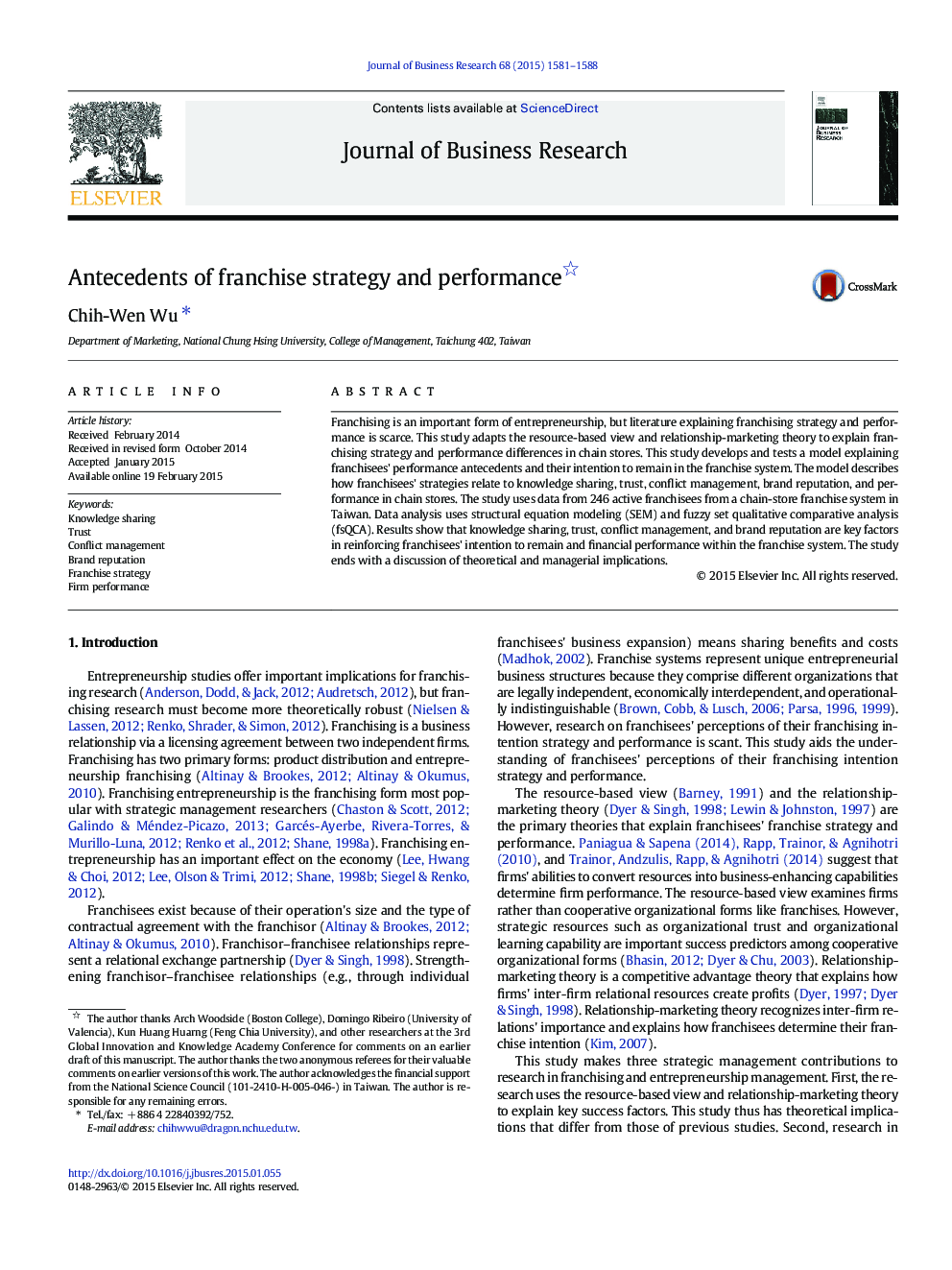| Article ID | Journal | Published Year | Pages | File Type |
|---|---|---|---|---|
| 1017202 | Journal of Business Research | 2015 | 8 Pages |
Franchising is an important form of entrepreneurship, but literature explaining franchising strategy and performance is scarce. This study adapts the resource-based view and relationship-marketing theory to explain franchising strategy and performance differences in chain stores. This study develops and tests a model explaining franchisees' performance antecedents and their intention to remain in the franchise system. The model describes how franchisees' strategies relate to knowledge sharing, trust, conflict management, brand reputation, and performance in chain stores. The study uses data from 246 active franchisees from a chain-store franchise system in Taiwan. Data analysis uses structural equation modeling (SEM) and fuzzy set qualitative comparative analysis (fsQCA). Results show that knowledge sharing, trust, conflict management, and brand reputation are key factors in reinforcing franchisees' intention to remain and financial performance within the franchise system. The study ends with a discussion of theoretical and managerial implications.
